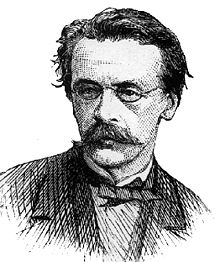John L. O'Sullivan
| John Louis O'Sullivan | |
|---|---|

John L. O'Sullivan as he appeared on the cover of Harper's Weekly in November 1874. O'Sullivan was then attending a conference in Geneva that sought to create a process of international arbitration in order to prevent wars.
|
|
| Born | November 15, 1813 at sea |
| Died |
March 24, 1895 (aged 81) New York City |
| Nationality | American |
| Known for | US Minister to Portugal |
| Spouse(s) | Susan Kearny Rodgers |
| Parents |
|
John Louis O'Sullivan (November 15, 1813 – March 24, 1895) was an American columnist and editor who used the term "manifest destiny" in 1845 to promote the annexation of Texas and the Oregon Country to the United States. O'Sullivan was an influential political writer and advocate for the Democratic Party at that time and served as US Minister to Portugal during the administration of President Franklin Pierce (1853–1857), but he largely faded from prominence soon thereafter. He was rescued from obscurity in the twentieth century after the famous phrase "manifest destiny" was traced back to him.
He was born at sea, the son of John Thomas O'Sullivan, an American diplomat and sea captain, and Mary Rowly. He descended from a long line of colorful Irish expatriates and soldiers of fortune, and had a strong sense of personal destiny. His father, third baronet of the O'Sullivan name, had been naturalized a US citizen and had served as US Consul to the Barbary States. John Louis O'Sullivan graduated from Columbia College (1831) and became a lawyer. His most successful venture came in 1837 when he founded and edited the United States Magazine and Democratic Review, based in Washington. It espoused the more radical forms of Jacksonian Democracy and published essays by the most prominent writers in America, including and the cause of a democratic, American literature. Contributors included Hawthorne, Ralph Waldo Emerson, Henry David Thoreau, John Greenleaf Whittier, William Cullen Bryant, and Walt Whitman. O'Sullivan was an aggressive reformer in the New York State Legislature, where he led the unsuccessful movement to abolish capital punishment. By 1846, investors were dissatisfied with his poor management, and he lost control of his magazine.
In the July–August 1845 issue of the Democratic Review, O'Sullivan published an essay entitled "Annexation", which called on the U.S. to admit the Republic of Texas into the Union. Because of concerns in the Senate over the expansion of the number of slave states and the possibility of war with Mexico, the annexation of Texas had long been a controversial issue. Congress had voted for annexation early in 1845, but Texas had yet to accept, and opponents were still hoping to block the annexation. O'Sullivan's essay urged that "It is now time for the opposition to the Annexation of Texas to cease." O'Sullivan argued that the United States had a divine mandate to expand throughout North America, writing of "our manifest destiny to overspread the continent allotted by Providence for the free development of our yearly multiplying millions." Texas was annexed shortly thereafter, but O'Sullivan's first usage of the phrase "manifest destiny" attracted little attention.
...
Wikipedia
